Public Trust In Government Hits New Lows
Americans have become deeply cynical about government. To some extent that is a good thing, but it's reaching unhealthy levels.
A new poll shows that public trust is government at all levels it at its lowest point ever:
Just 13% of Americans say the government can be trusted to do what is right always or most of the time, with just over three-quarters saying only some of the time and one in 10 saying they never trust the government, according to the poll.
“The number who trust the government all or most of the time has sunk so low that it is hard to remember that there was ever a time when Americans routinely trusted the government,” CNN Polling Director Keating Holland said.
“But polls conducted by the University of Michigan consistently found a majority of Americans in the 1960s and early 1970s saying that the government could be trusted all or most of the time – until Watergate. In 1972, 53% said they trusted the government always or most of the time. By 1974, that figure had plummeted to 36%, and except for a brief period of patriotic sentiment immediately after the 9/11 attacks, it has remained under 50% ever since,” Holland added.
The survey indicates that skepticism doesn’t stop at the White House and Capitol Hill: Only 17% of Americans believe that big business can be trusted to do what is right always or most of the time.
The poll was prompted by the 40th Anniversary of the Watergate scandal, which culminates tomorrow with the anniversary of President Nixon’s resignation in the face of what would have been his absolutely certain impeachment by the House of Representatives and conviction in the Senate. That is appropriate, of course, since it is largely around the time of the Watergate scandal that Americans were finally stripped of the rose-colored glasses that they used to view their country and its government through. While there have been times since then when public confidence in government institutions has been far higher than it is today, such as during the Reagan and, to some extent, the Clinton years, as well as in the wake of the September 11th attacks, for the most part the American public has become far more cynical about politics and government over the past forty years, thanks in no small part to the fact that Watergate revealed things about the government that had never been made public before. Since then, of course, we have learned that there have been other eras in American history when government was not exactly operating in the most ethical manner possible, and in the years that have followed everything from Iran/Contra to the scandals of the Clinton Era to the Iraq War have seemingly occurred on a regular basis as if to confirm that what we learned in Watergate remains as true now as it was then.
On some level, this kind of public skepticism about government is a good thing. It is better that we live in a world where Americans are skeptical about the claims that their political leaders make rather than one where people blindly accept what politicians, journalists, and pundits tell them. We’re better off being a nation of Cassandras than a nation of Pollyanna’s. More importantly, people ought to be thinking for themselves rather than letting others do their thinking for them, and they ought to recognize that government is as much a potential source of bad as it is a source of good, and arguably falls more on the bad end of the spectrum. To the extent that public distrust of government is reflective of these attitudes, it is a good thing and can be a positive force in helping to restrain politicians from overreaching.
Of course, there’s also a bad side to this distrust in government. Some people have become so deeply cynical about politics, for example, have For some people, of course, this cynicism has become so deeply ingrained that they’ve essentially tuned politics out of their lives.. That’s dangerous because it essentially cedes the ground to the ideologues and those who use government to advance their financial interests. To some extent, that’s the situation we find ourselves in today, with many people that fall in the middle of the political spectrum expressing essentially equal frustration with the partisans of the left and the right and basically throwing their hands in the air in frustration and walking away rather than trying to get involved in a political process that has become increasingly frustrating for people who don’t really care whether the left or the right “wins” a particular argument. Because of that, we have a situation where little gets done because both sides use the political process to advance partisan interests rather than accomplishing anything of substance. Clearly, things can’t go on like this forever. At some point, the American people will have to take back control of their political system and bring an end to the partisanship that has caused it to grind to a halt. However, given the extent to which contemporary politics only serves to reinforce the attitudes that this poll reflects, and the fact that such attitudes make it less likely that people will get involved in politics, I am not sure if there is actually any hope of this happening any time soon.
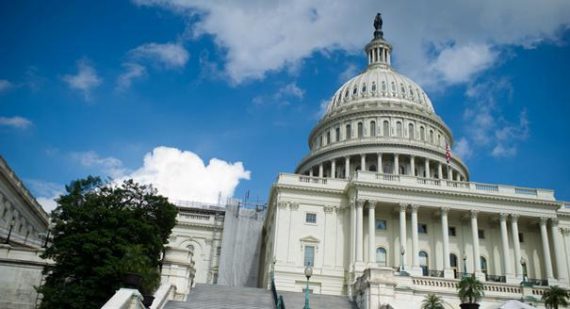

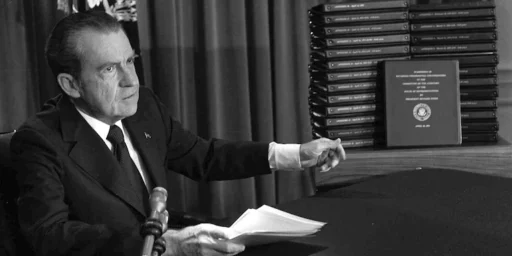

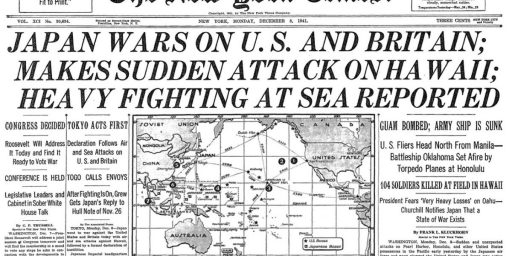
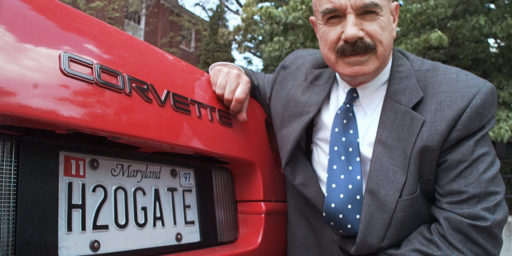
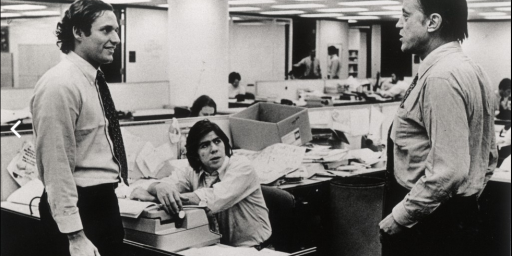
Actually, this is the more intriguing and depressing finding of the poll if you ask me. The weight you give Watergate in the post is not reflected by Americans in general, it seems.
The American people are idiots who know nothing about the rest of the world and don’t have the slightest clue how great they have it.
Do we have famine? Plague? War? No? Then that puts our government ahead of most.
What exactly are our problems? A bunch of Guatemalan kids at the border? That’s not exactly ISIS surrounding us on a mountain. Not enough high-paying, full-time jobs? Look at our closest competitors and thank your lucky stars, you ingrates.
We have First World problems. Those problems are irritating and a lot of people have less than they want or should have. But Jesus, people, get a little perspective here.
What were we expecting after forty years of: government is the problem, the dead hand of government, taxation is theft, keep the government’s hands off my Medicare, vote fraud, the President is a socialist Muslim usurper, impeach Clinton, impeach Obama, Benghaziiii(TM), etc. ad infinitum, ad nauseum? (What’s the both-sides-do-it equivalent on the Dem side?)
Also, besides Watergate, you think maybe Vietnam had something to do with growing cynicism in the late 60s and early 70s?
I’ve been seeing a lot of discussion lately of Rick Perlstein’s The Invisible Bridge which is described as saying a lot of changes starting in the 70s were the result of the rise of movement conservatism. Hacker and Pierson in Winner Take All Politics note more realistically that it was in the 70s that corporations began to spend big on politics. They financed movement conservatism and all this anti government rhetoric.
@michael reynolds: Water, sewers, roads, electricity, trash pick up, fire departments, police….. Aaaacchhhhh, who needs them? I got my gun.
I trust the Government will do the right thing and prosecute Hinkley.
http://reason.com/24-7/2014/08/08/james-bradys-death-ruled-a-homicide
@OzarkHillbilly: OK, but what else have they ever done for us?
http://www.youtube.com/watch?v=ExWfh6sGyso
@gVOR08:
This.
Those of you totting up the lasting legacy of St. Ronald Reagan, don’t forget to include this on the ledger. In 1970 government was the thing that could put Americans on the moon, cow the Soviet aggressor (and get him out of Cuba), stop air pollution, connect the nation with smooth pavement, and put an end to centuries of racial discrimination. By 1988, government was the problem, greed was good, and white males were being discriminated against. Feh.
The founders thought there is no such thing as too much skepticism of government.
They were right.
Keep it up, Barry and the numbers will go even lower.
I’m tired of propping up Iraq and Afghanistan while accomplishing nothing of substance
beyond wasting lives and money. Another damn religious war. Indefensible in the modern world.
@Eric Florack:
Perhaps. But they also thought that government had important duties — to establish justice, ensure domestic tranquility, provide for the common defense, promote the general welfare, etc. Their skepticism of government led them to seek checks and balances that would help keep government focused on those missions. They would have been horrified by the Libertarian ideal of emasculating government to the point where it can’t do its job.
Most of our focus on social and cultural dysfunction is on the problems of the poor and lower classes. Our sorry state of politics, however, is almost entirely the result of a collapse in standards among the elite. You can’t really blame the average person when they’re getting horrible/destructive/evil messages from the elite with which he or she identifies and no one in the elite on any side does anything about it.
Mike
@Eric Florack:
Would you do me the favor of pointing to a quote indicating that the Founders believed skepticism of government should be set to maximum at all times?
@DrDaveT:
The founders were also skeptical of people like all of us. The franchise was extended to a minority of folks and then only to some offices. They worried about the mob as well as the powers-that-be.
@michael reynolds: I don´t know. In Latin America even poor people have access to something that we call ‘health care”.
@OzarkHillbilly: red herring at best .. the federal government has no responsibility for those items under the Constitution, that is local or state … the federal government is too big too corrupt and must be pared down to a logical and efficient size
@ernieyeball: you can’t its double jeopardy ..